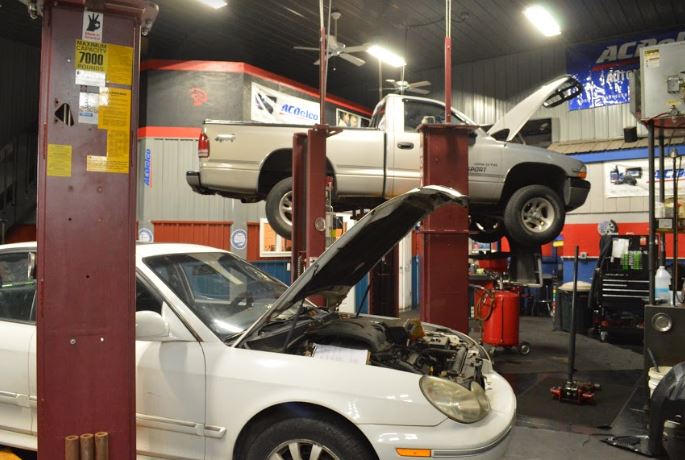All Categories
Featured

Keeping your auto is crucial for ensuring its performance, safety and security, and long life. However, despite finest objectives, numerous cars and truck owners make maintenance errors that can result in pricey repair work or malfunctions. Whether you're an experienced vehicle driver or a new vehicle owner, being conscious of these common blunders can save you time, cash, and anxiety in the lengthy run.
- Avoiding Regular Oil Changes
One of the most important and often forgot maintenance jobs is transforming your vehicle's oil. Engine oil lubes your car's engine, keeping it trendy and decreasing friction. With time, oil comes to be filthy and loses its performance. Skipping oil changes or waiting too long between them can bring about engine damage and bad performance. Most vehicles need an oil adjustment every 3,000 to 5,000 miles, though some newer designs may permit longer periods. Always follow your maker's standards for oil adjustment frequency, and maintain an eye on oil levels to avoid serious damages.
- Not Changing Worn-out Brake Pads
Damaged brake pads can significantly minimize your braking capability, creating your vehicle to take longer to stop. Positive brake upkeep assists stop costly fixings and guarantees your safety and security on the road.
- Disregarding Tire Upkeep

Your tires are the only point of contact with the roadway, so it's necessary to keep them in good problem. Several drivers make the blunder of neglecting tire upkeep till they experience a flat or blowout. Not checking tire pressure regularly is one of one of the most usual blunders. Underinflated tires can trigger poor fuel effectiveness, uneven wear, and even unsafe blowouts, while overinflated tires lower grip. Routinely checking tire stress (a minimum of once a month) and guaranteeing your tires are correctly blown up can help lengthen their lifespan and boost your automobile's handling.
- Delaying Timing Belt Substitute
The timing belt plays a crucial role in keeping the engine's interior parts operating in sync. If the timing belt breaks or slides, it can cause significant engine damage that might bring about pricey fixings. Lots of vehicle proprietors neglect the recommended timing belt substitute schedule, which can result in devastating engine failure. Generally, timing belts need to be replaced every 60,000 to 100,000 miles, depending on the vehicle's make and design. Make sure to follow your car manufacturer's suggestions and replace the timing belt on schedule to avoid severe engine problems.
- Failing to Display Liquid Degrees
Your vehicle's various liquid systems, including coolant, transmission fluid, and brake liquid, all require to be preserved for your auto to run correctly. Disregarding to inspect these liquid levels frequently can trigger overheating, sliding gears, or even complete system failure. Fluid levels must be checked at least as soon as a month, specifically soon journeys. If you notice a fluid leak or a decrease in liquid levels, deal with the problem quickly by visiting a technician. Maintaining these essential liquids covered up guarantees your car runs smoothly and stops preventable damage.
- Forgeting the Air Filter
The air filter is in charge of guaranteeing that clean air streams right into your engine, which is essential for its efficiency. A clogged up air filter can lower fuel effectiveness, decrease engine power, and boost hazardous exhausts. Several car proprietors fail to remember to replace the air filter up until it's far too late, but it is very important to replace it routinely-- every 12,000 to 15,000 miles or more, relying on driving problems. If you frequently drive in dusty or contaminated locations, you may require to replace the air filter extra often. A clean air filter will certainly aid your automobile run more successfully and save on gas.
- Not Dealing With Warning Lights
Many modern-day autos are furnished with control panel caution lights that inform you to prospective concerns, such as reduced tire pressure, engine problem, or oil issues. Also if the vehicle seems to be running fine, those alerting lights are there for a factor.
Final Thought: Preventative Upkeep Saves You Cash
Preventing typical vehicle upkeep mistakes is essential for the health of your vehicle and your budget. Do not wait for a problem to arise-- stay on top of your car's upkeep and resolve any kind of problems early on.
Latest Posts
Signs When Your Car Needs Expert Auto Repair at Montclare Auto Repair
Find Auto Services & More: Complete Auto Care Solutions from Montclare Auto Repair
Recognizing When Your Car Needs Expert Car Repair at Montclare Auto Repair
More
Latest Posts
Signs When Your Car Needs Expert Auto Repair at Montclare Auto Repair
Find Auto Services & More: Complete Auto Care Solutions from Montclare Auto Repair
Recognizing When Your Car Needs Expert Car Repair at Montclare Auto Repair